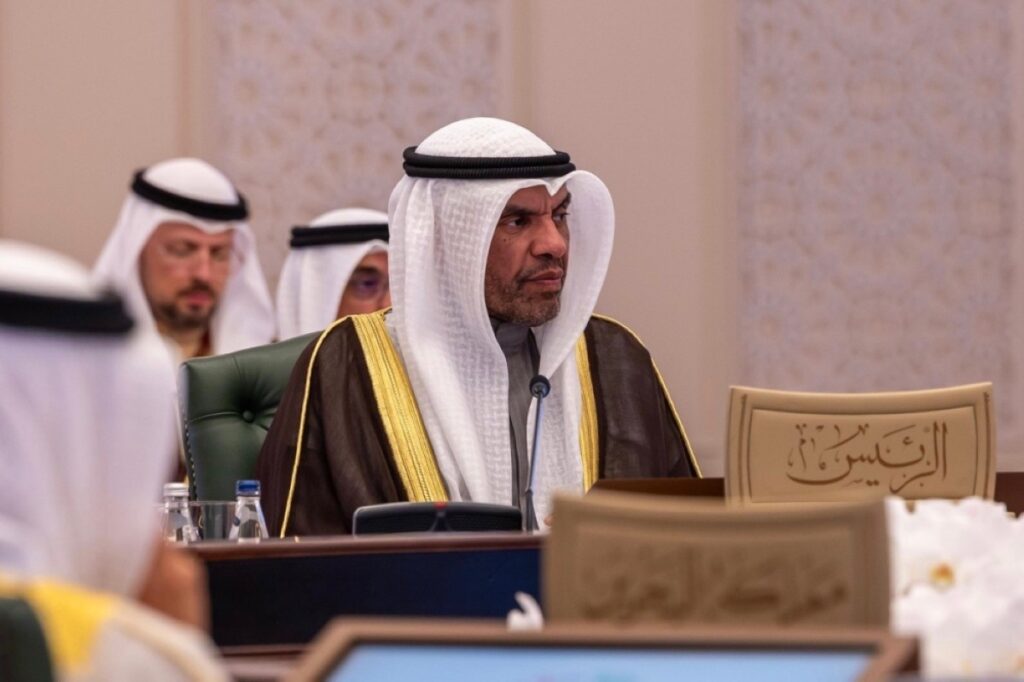Diplomatic contacts intensify as Iran’s neighboring states open evacuation corridors
KUWAIT: Kuwait has activated a full-scale emergency evacuation plan for its citizens currently in Iran, as the war between the Zionist entity and Iran entered its sixth day on Wednesday. The Kuwaiti government is coordinating with neighboring countries and international partners to ensure the safe and swift return of its nationals amid rapidly escalating security concerns. Foreign Minister Abdullah Al-Yahya reaffirmed the government’s commitment to a “safe and speedy return” for all Kuwaiti citizens in Iran, stressing that “no injuries have been reported among them” since the beginning of the Zionist entity’s strikes on Iran early Friday.
“The Ministry of Foreign Affairs has prepared a comprehensive emergency evacuation plan for Kuwaiti citizens in Iran in light of the accelerating developments in the region,” Al-Yahya told Kuwait News Agency (KUNA) on Tuesday. Speaking in a televised interview with Al-Akhbar channel on Wednesday, he added, “Kuwait gives top priority to the safety of its citizens abroad, especially under current circumstances.”
Assistant Foreign Minister for Asian Affairs Sameeh Hayat confirmed Tuesday that more than 1,000 Kuwaitis, many of them in Iran for visits, are set to be evacuated “as quickly as possible.” He made the comments during a Philippine Embassy reception in Kuwait.
The ministry, said Al-Yahya, has begun tracking and verifying the presence of citizens across multiple cities in Iran as part of the state’s emergency plan. “We started by identifying citizens in the capital, Tehran, then in the cities of Mashhad and Qom. We have contacted all Kuwaitis in these cities, recorded their numbers, and began evacuating them at the earliest opportunity and from the closest crossing points,” he said.
Al-Yahya added that evacuations are taking place through land routes between Iran and Iraq, with citizens being transported through Iraqi territory and on to Kuwait. “The figures are constantly changing, but we are close to finalizing the count in Tehran while work continues in other cities,” he explained. Additionally, evacuations have begun via Turkmenistan, with some citizens transferred to the capital Ashgabat, ahead of their return to Kuwait. “We are working in full coordination with the competent authorities in neighboring countries to ensure smooth border crossings, and we pray that all our citizens return home safely,” Al-Yahya said.
No reported injuries
Kuwait has not reported any injuries among its citizens in Iran since the outbreak of hostilities. The Zionist entity’s air assault on Iran has so far killed at least 224 people, according to Tehran, including senior military commanders, nuclear scientists, and civilians. The toll has not been updated since Sunday. Al-Yahya also confirmed that Kuwait, as current chair of the GCC, had called a virtual meeting with Gulf foreign ministers on Saturday in coordination with the GCC Secretariat. The ministers issued a unified statement condemning the Zionist attacks on Iran, calling for an immediate ceasefire and the resumption of negotiations.
On the risk of nuclear escalation, Al-Yahya said Kuwait is cooperating with Gulf states to monitor potential radiological threats, stressing that “all indicators are currently stable, and the situation is being closely monitored.” Regarding consular services, the foreign minister explained that Kuwait operates only one diplomatic mission in Tehran, while some other Gulf countries have consulates in Mashhad and Qom. “We operate as a unified Gulf team. Any Gulf citizen in Iran can rely on the nearest Gulf embassy or consulate,” Al-Yahya noted.
Regional coordination
Deputy Foreign Minister Sheikh Jarrah Jaber Al-Ahmad Al-Sabah held calls with Bahrain’s Undersecretary for Political Affairs, Khalid Al-Jalahma, and Turkmenistan’s Deputy Foreign Minister, Ahmed Gurbanov, to discuss regional developments and coordination on evacuation logistics. Separately, Foreign Minister Al-Yahya received a call on Tuesday from Italian Deputy Prime Minister and Foreign Minister Antonio Tajani. The two diplomats reviewed the security situation and discussed enhanced international cooperation to ensure regional stability.
These diplomatic exchanges come as multiple countries begin evacuating their citizens from Iran. Italy has already moved dozens of nationals to Azerbaijan and Turkey, while Turkmenistan is facilitating the transfer of foreign civilians and diplomats, offering food, shelter, and transport, according to its Foreign Ministry. Bahrain is also coordinating with Turkmenistan to assist its citizens. Bahraini Foreign Minister Dr. Abdullatif Al-Zayani and his Turkmen counterpart Rashid Meredov agreed on logistical support to allow Bahrainis stranded in Iran to cross into Turkmenistan. The Ministry of Foreign Affairs continues to urge Kuwaiti citizens in Iran to remain in contact with the embassy, follow official guidance, and avoid high-risk areas as evacuations progress. — Agencies

